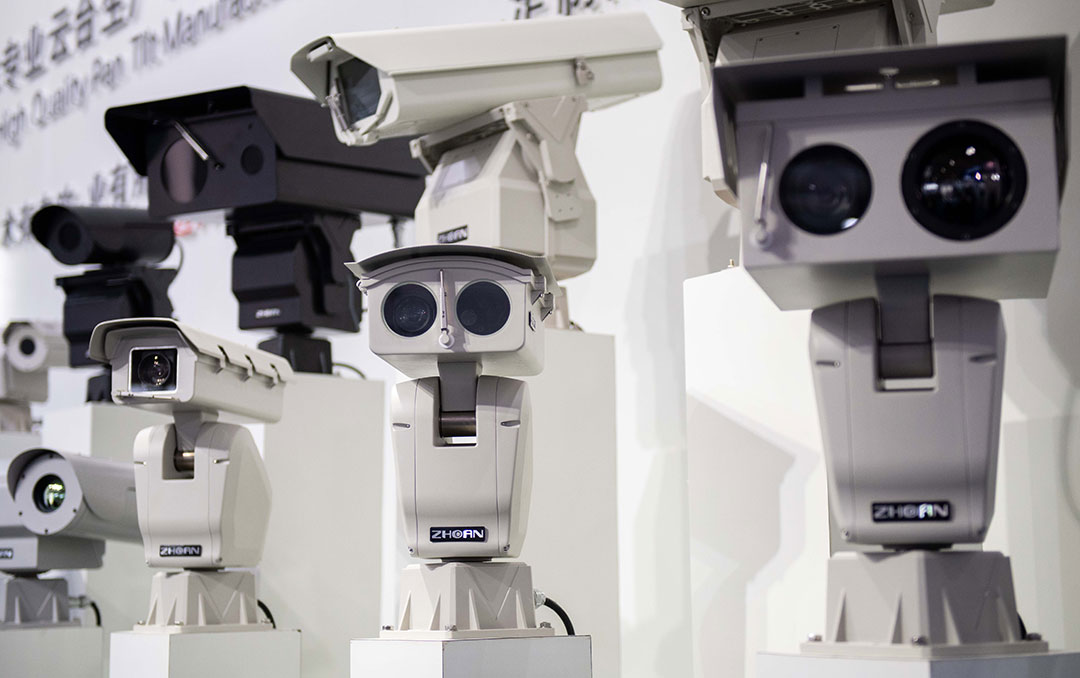U.S. joins G7 artificial intelligence group to counter China

The Associated Press
The United States has joined an international panel for setting ethical guidelines for the use of artificial intelligence (AI).
The White House’s chief technology officer, Michael Kratsios, said it is important to establish shared democratic principles as a counter to the Chinese Communist Party’s (CCP’s) record of “twisting technology” in ways that threaten civil liberties.
“Chinese technology companies are attempting to shape international standards on facial recognition and surveillance at the United Nations,” he said May 28, 2020. (Pictured: Artificial intelligence security cameras using facial recognition technology are displayed at the 14th China International Exhibition on Public Safety and Security in Beijing in October 2018.)
The Group of Seven — the world’s wealthiest democracies — launched the Global Partnership on AI after a virtual meeting May 28 of national technology ministers. It came nearly two years after the leaders of Canada and France announced they were forming a group to guide the responsible adoption of AI based on shared principles of “human rights, inclusion, diversity, innovation and economic growth.”
U.S. President Donald Trump’s administration objected to that approach, arguing that too much focus on regulation would hamper U.S. innovation. Negotiations over the past year and changes to the group’s scope led the U.S. to join, Kratsios said.
“We worked very hard to make it clear that it would not be a standard-setting or policymaking body,” he said.
U.S. involvement is important because of the large role that American tech firms play globally and the nation’s historic advocacy for human rights, said Kay Mathiesen, an associate professor focused on computer ethics at Northeastern University in Boston.
“U.S. tech companies such as Microsoft, Google and Apple are all concerned about what guidelines they should be following to use AI responsibly,” she said. “Given their global presence, the fact that the U.S. wasn’t involved does not mean that they would not end up having to follow any regulations developed by the rest of the G7.”
The U.S. push to scrutinize AI-assisted surveillance tools built by the People’s Republic of China also fits into a broader trade war in which both countries are vying for technological dominance.
The CCP demanded June 1, 2020, that the U.S. withdraw the latest round of export sanctions imposed on Chinese tech companies accused of playing roles in a crackdown in its Muslim northwestern region of Xinjiang.




